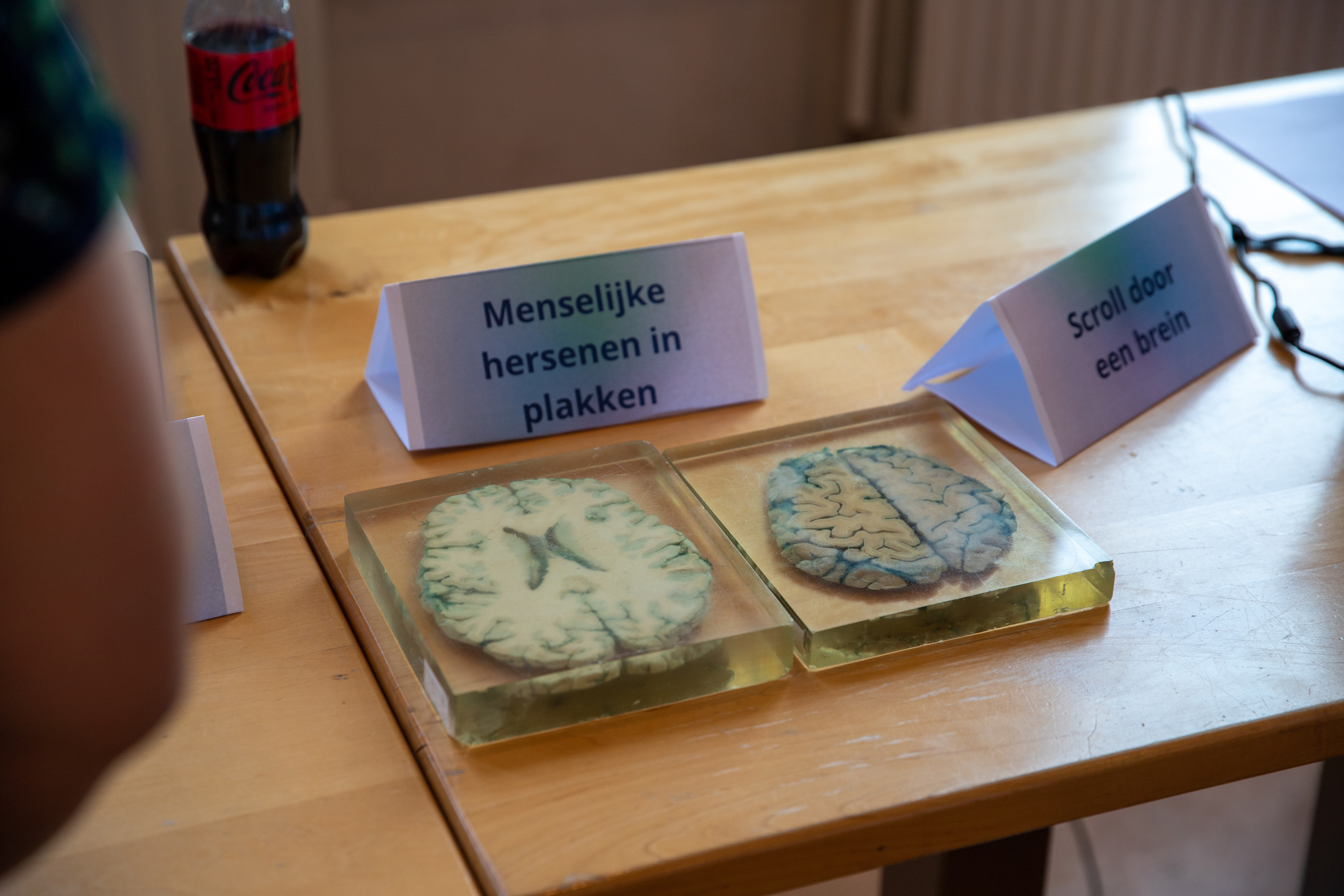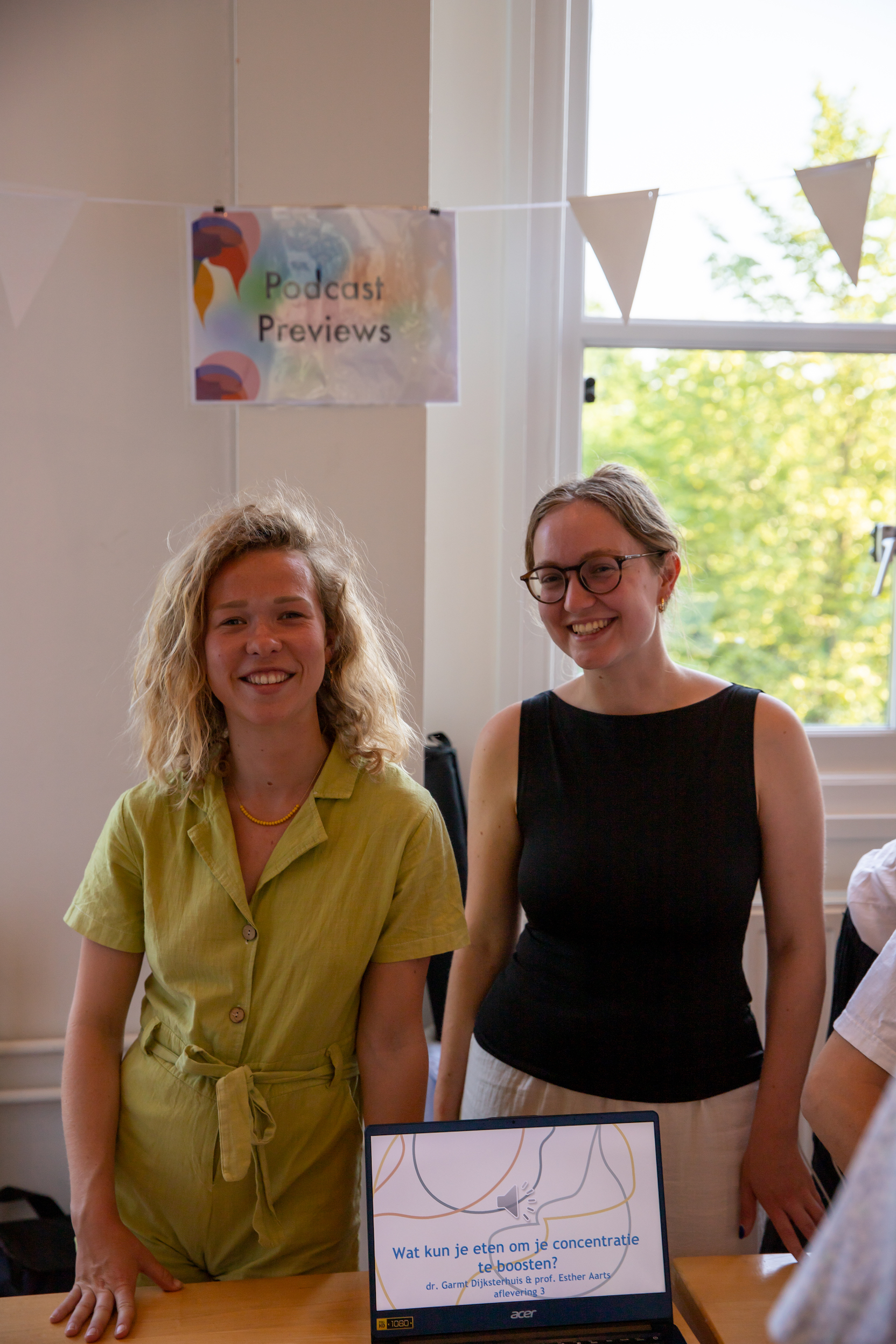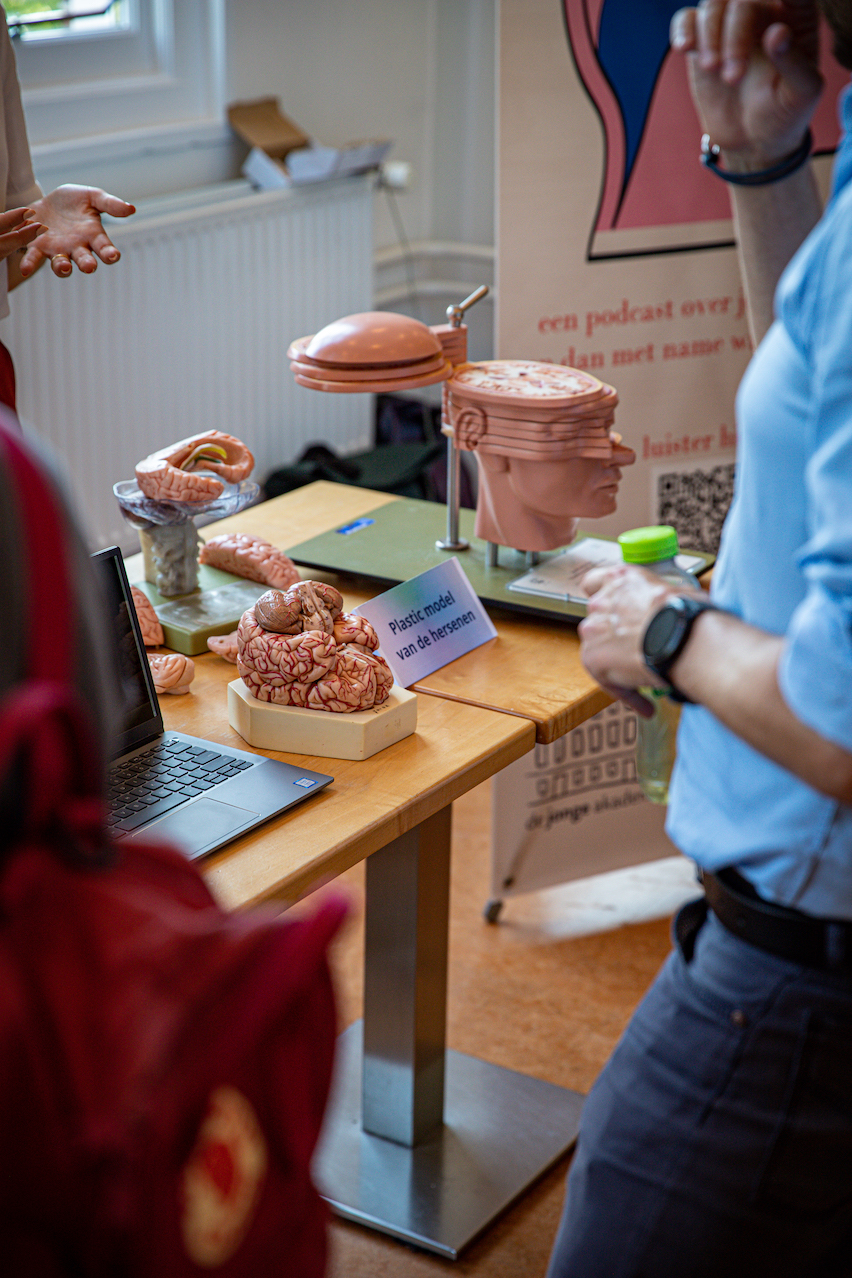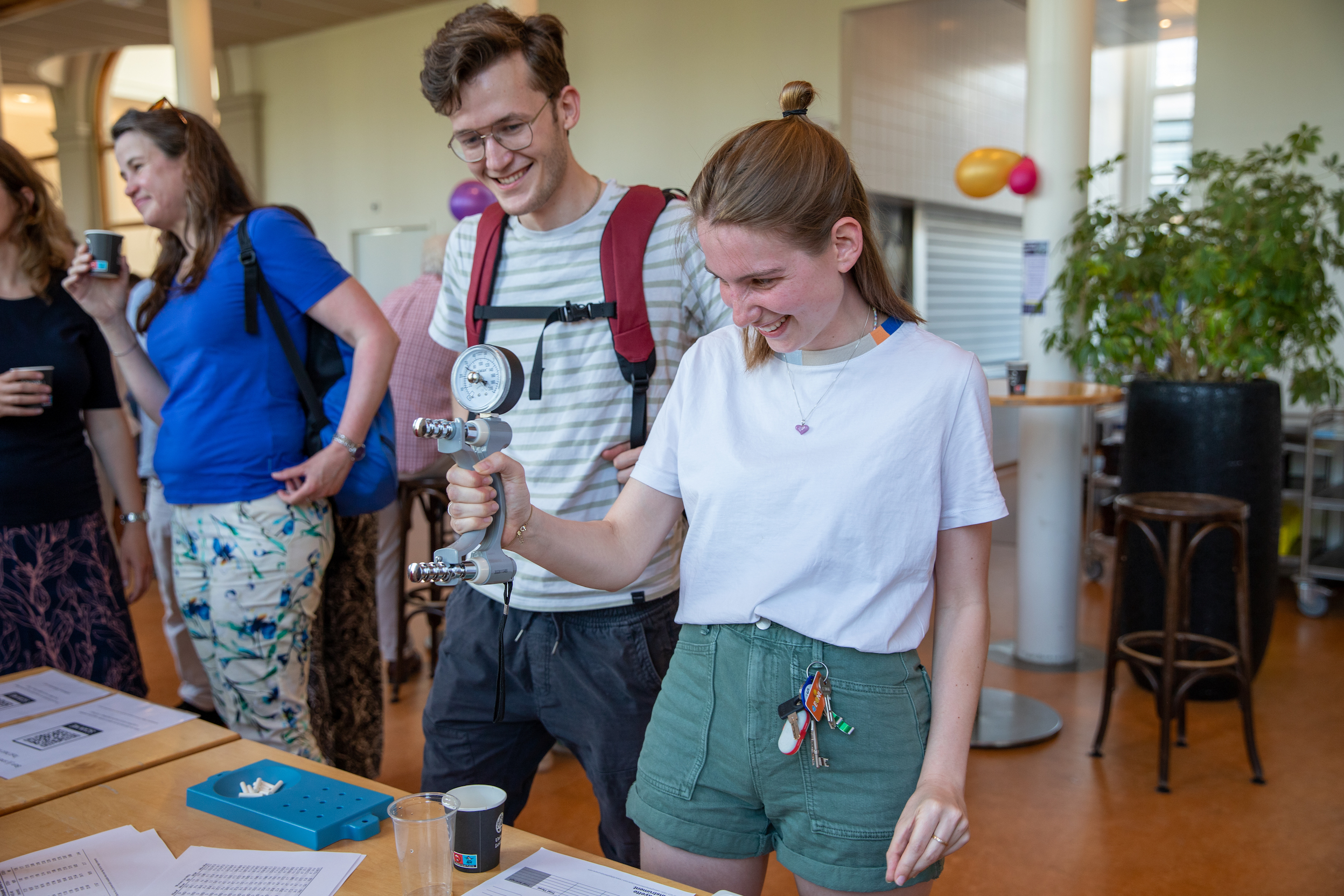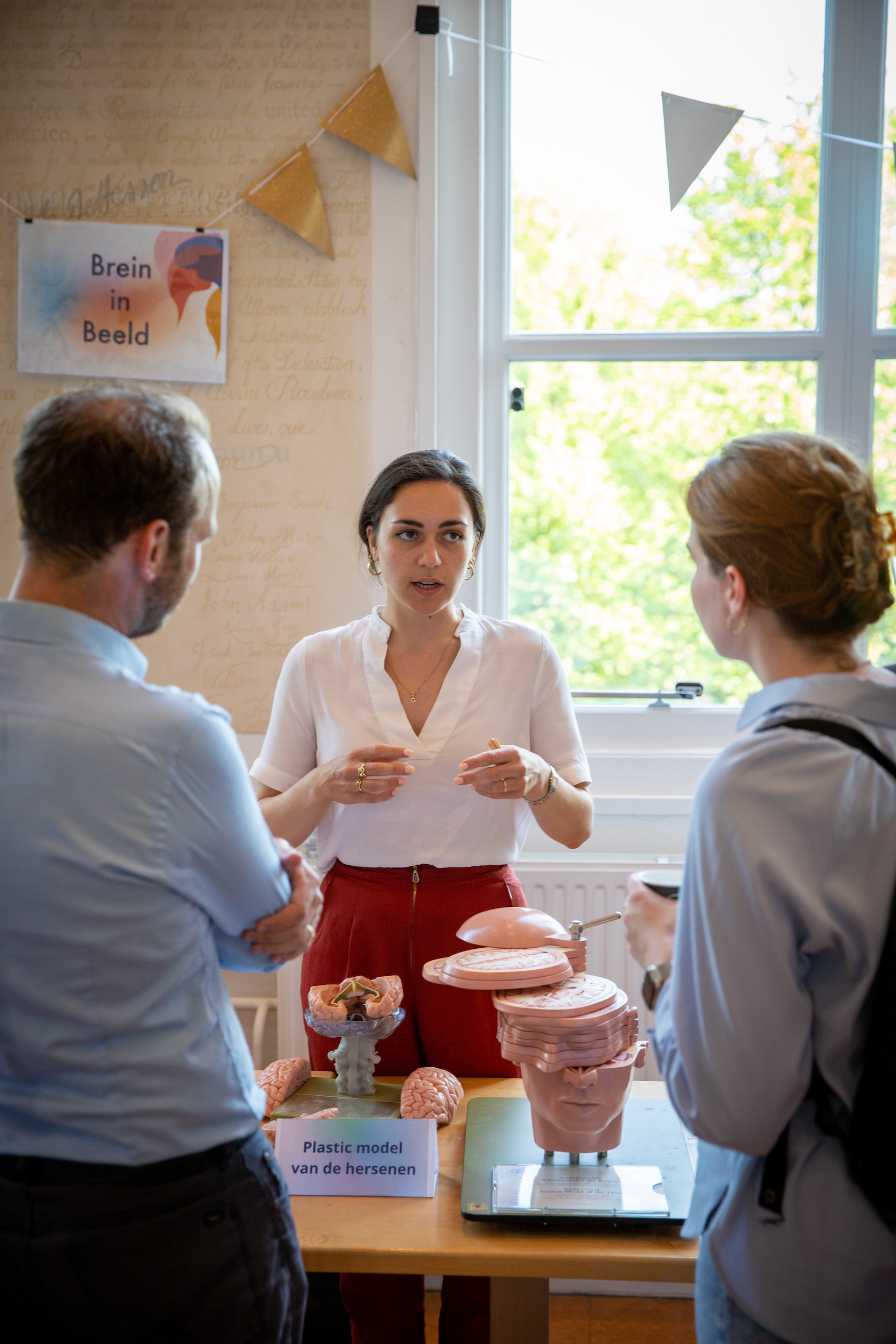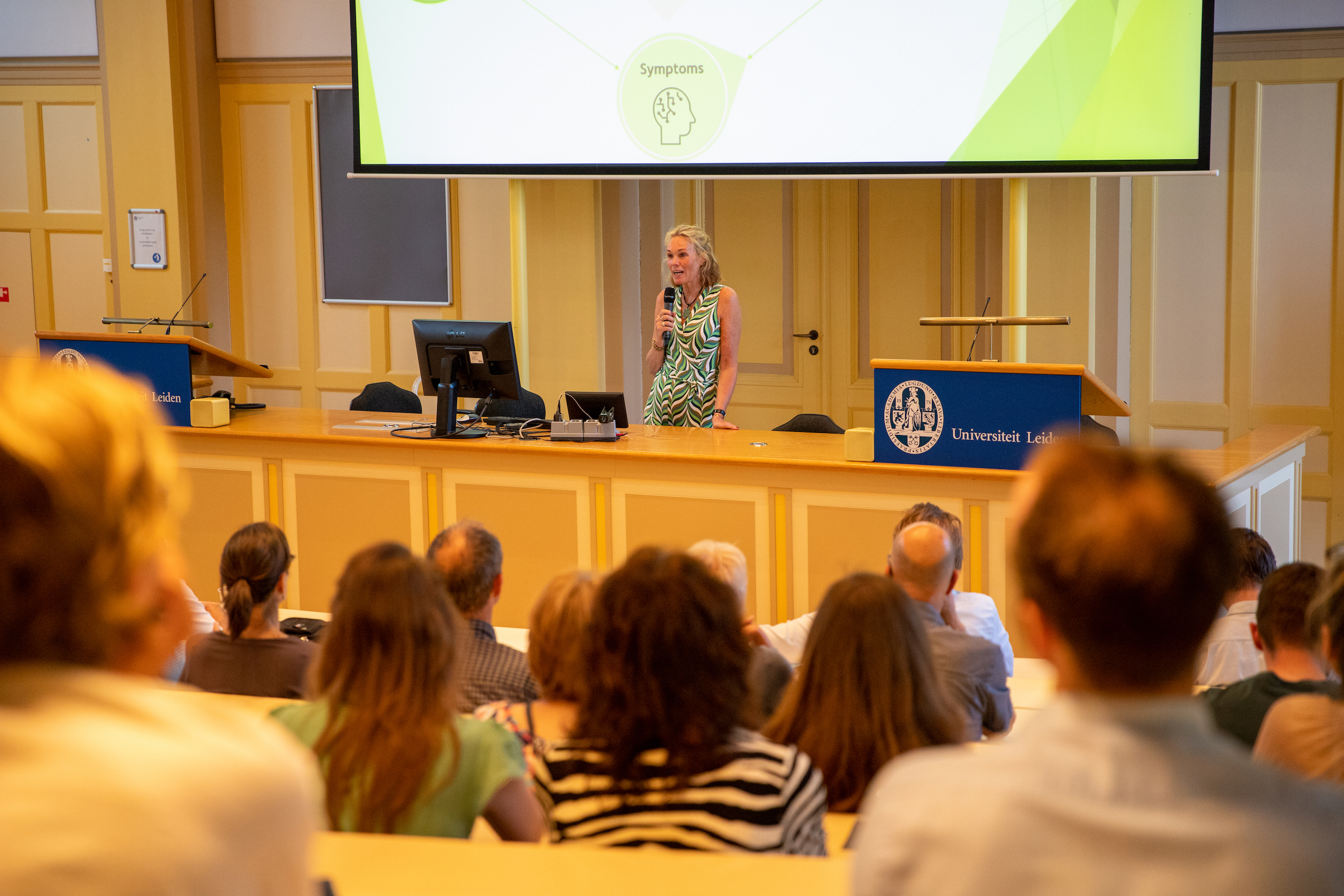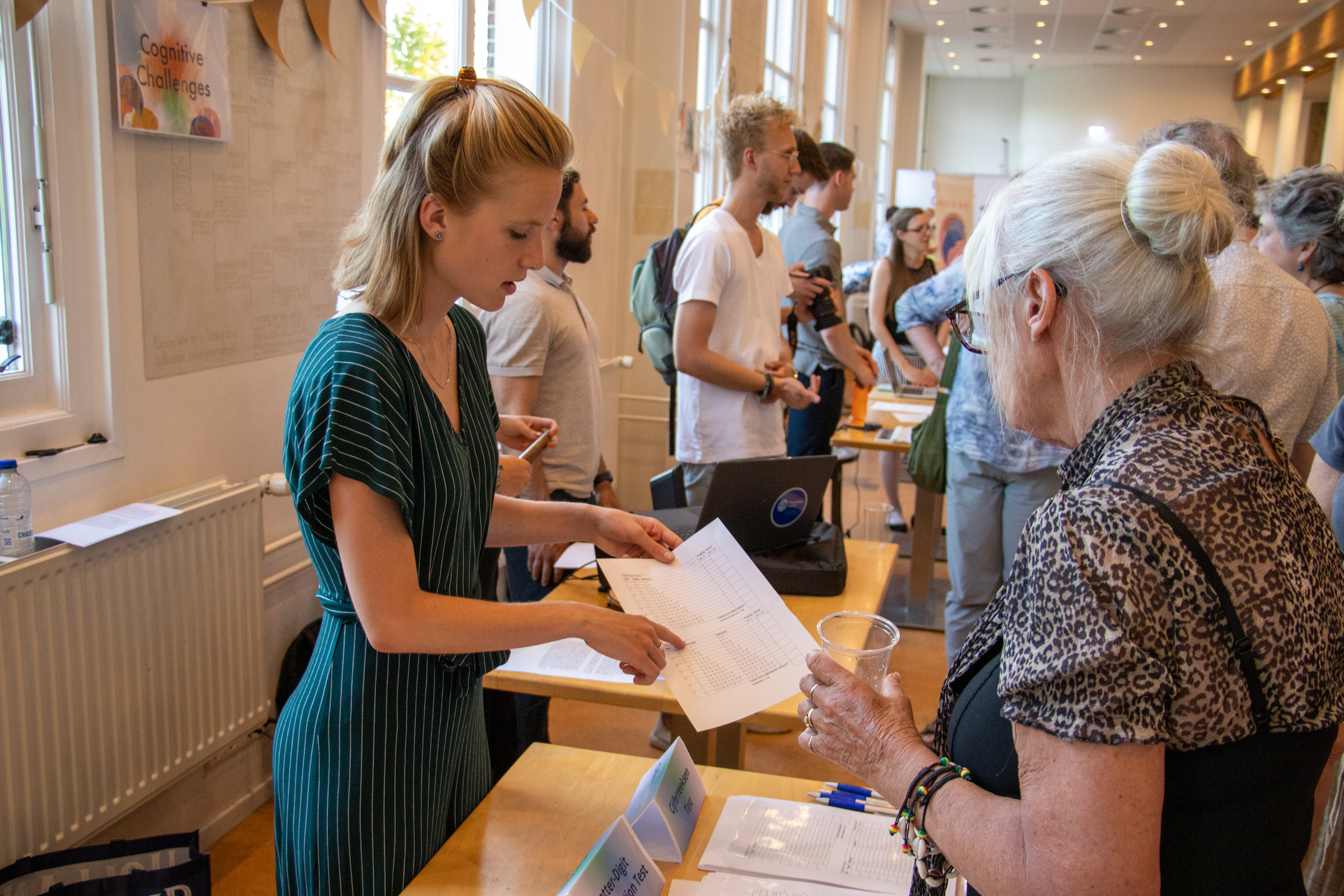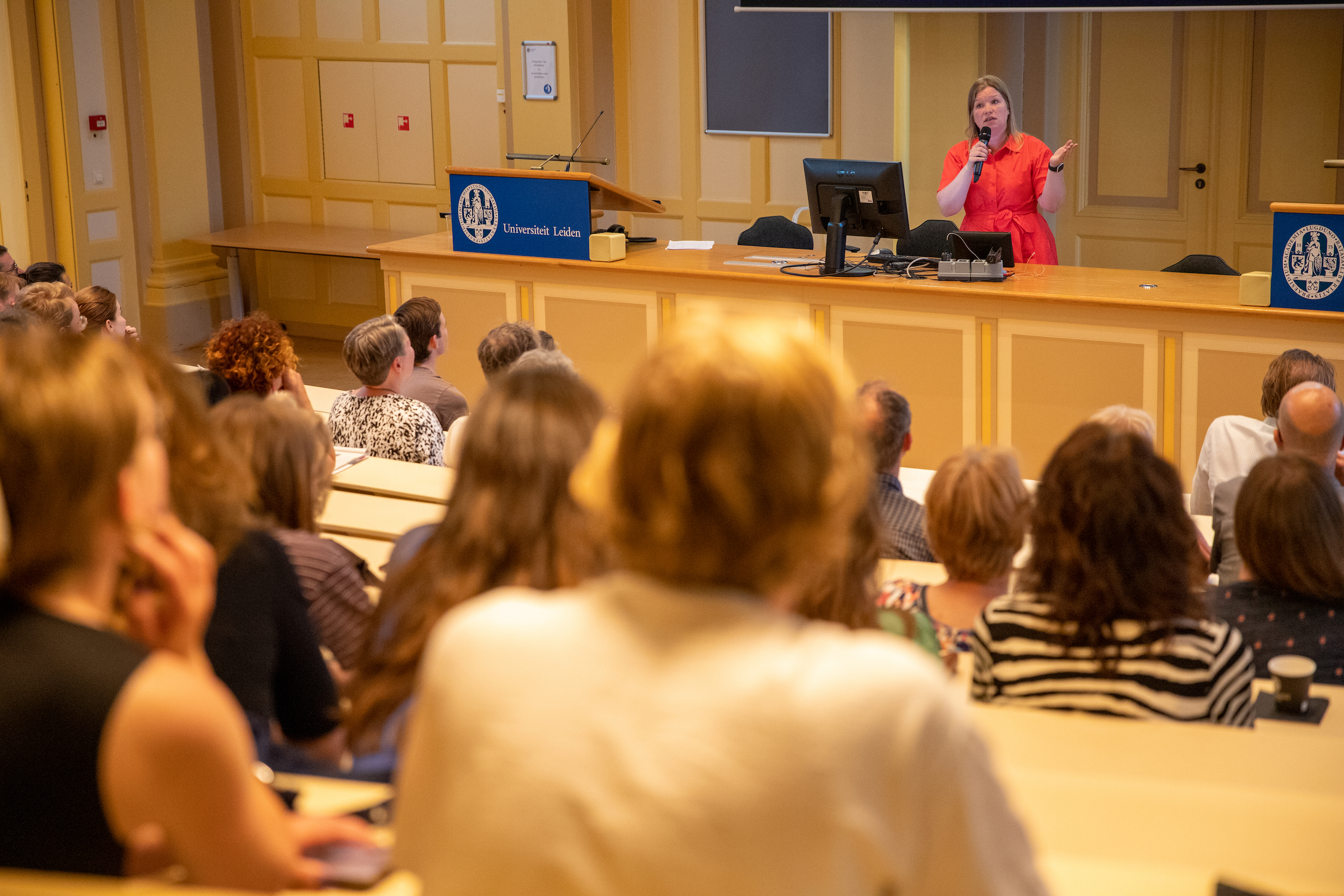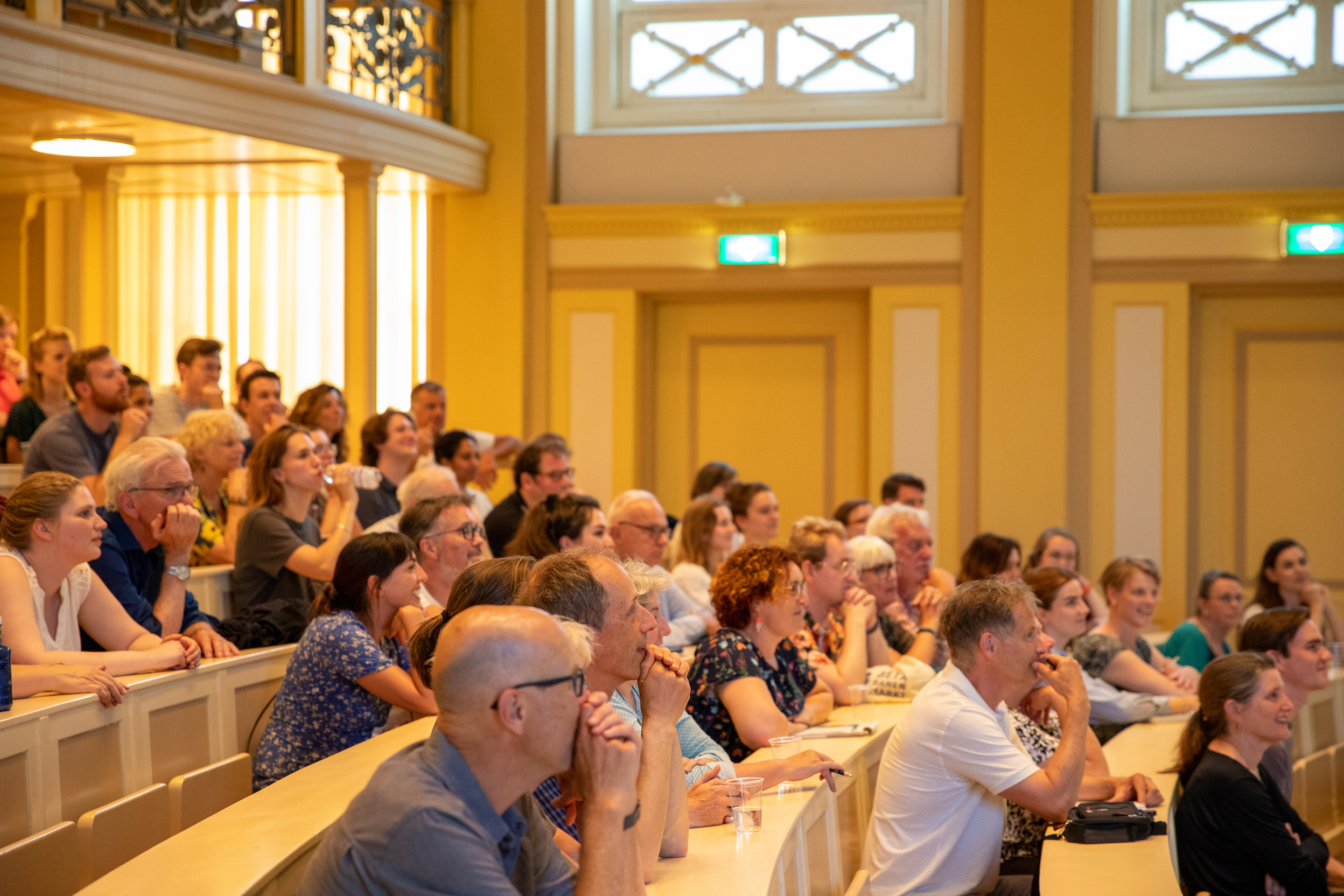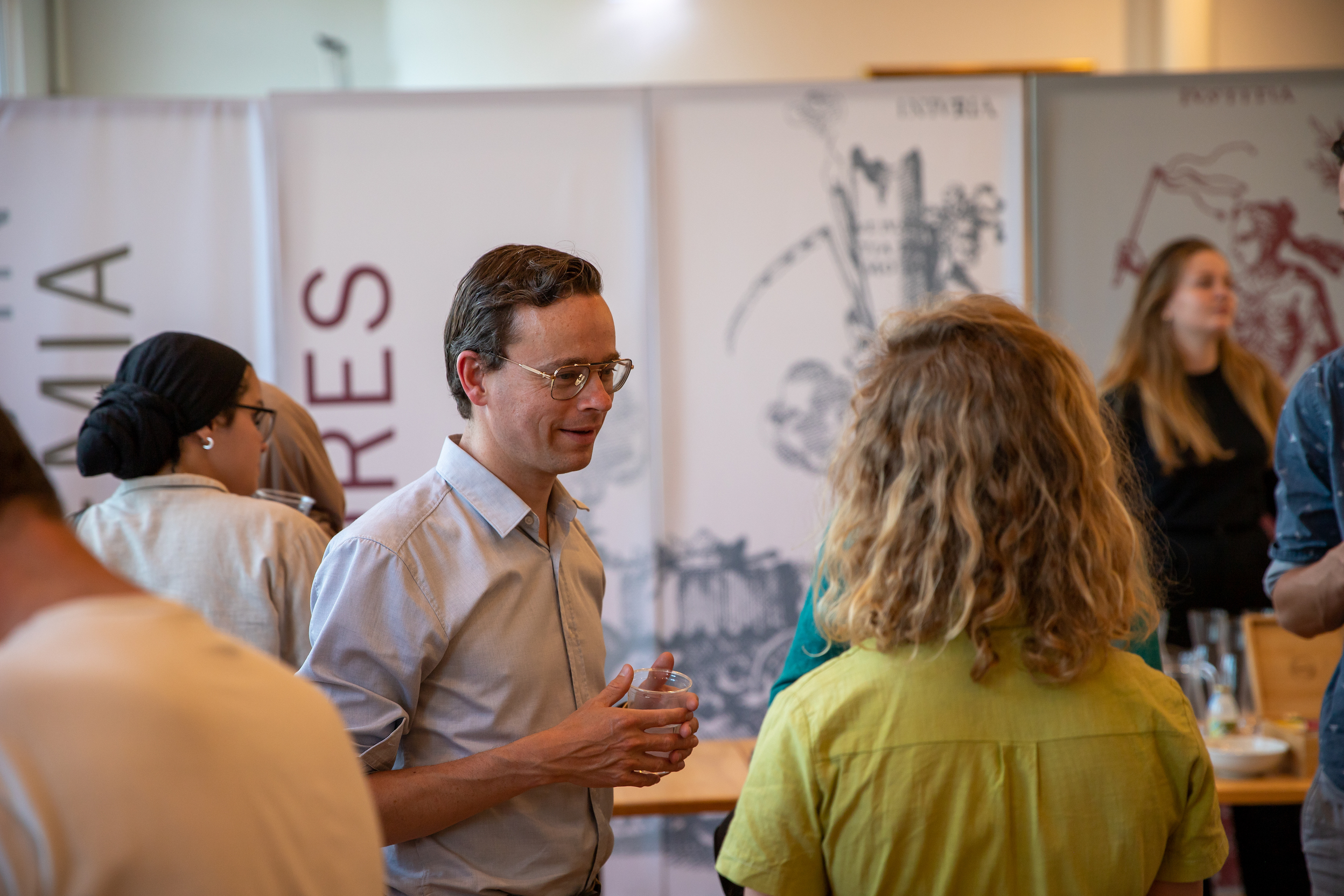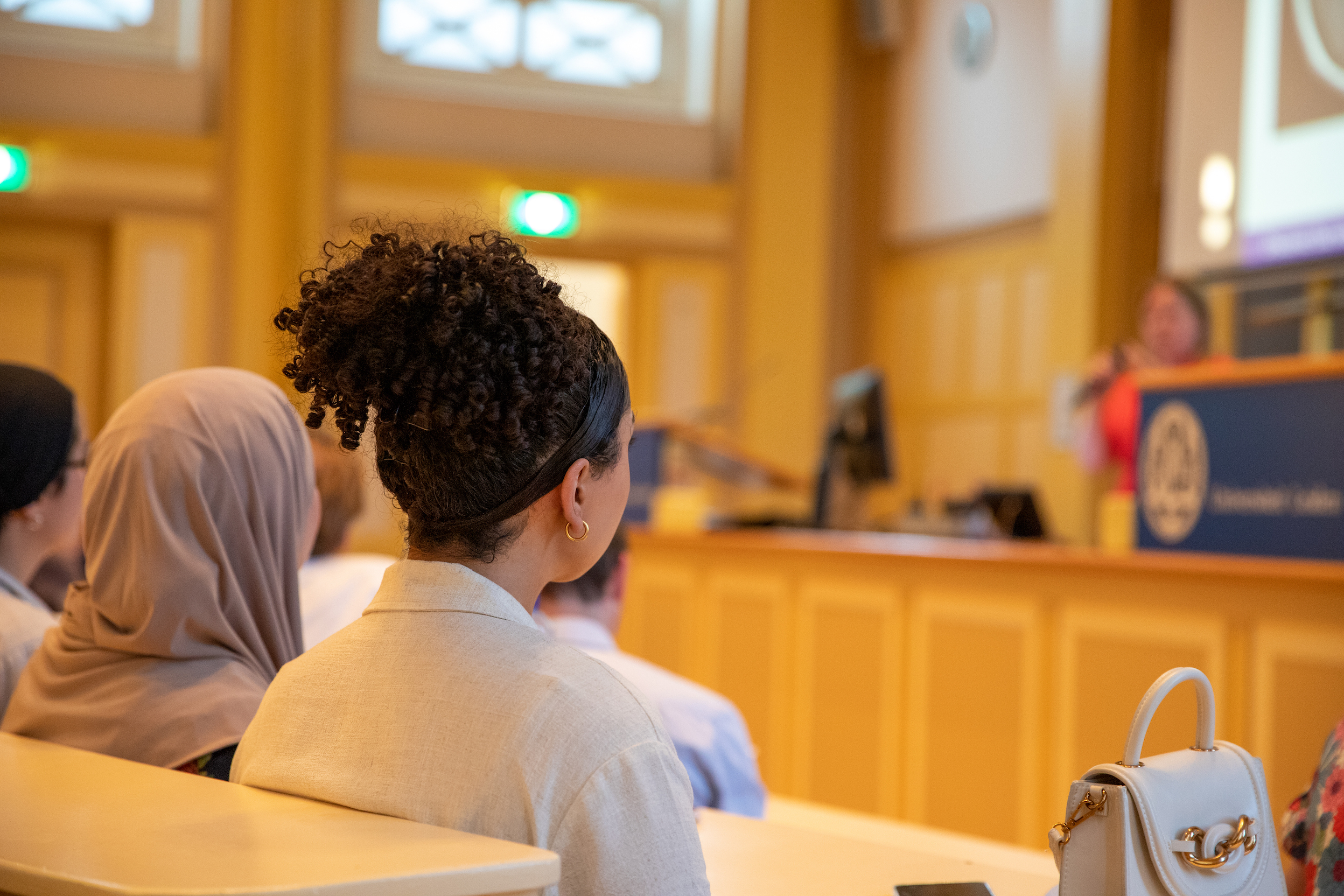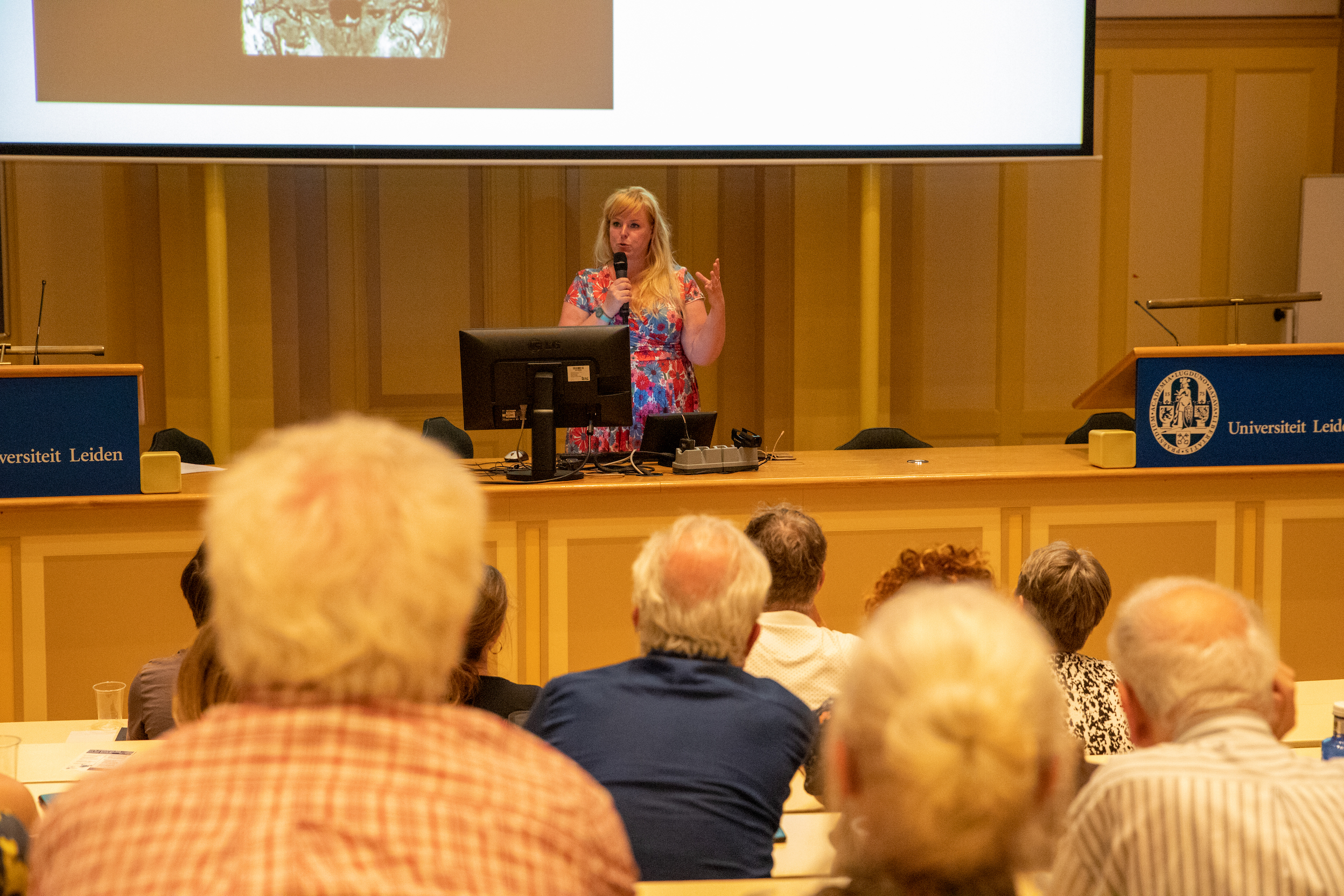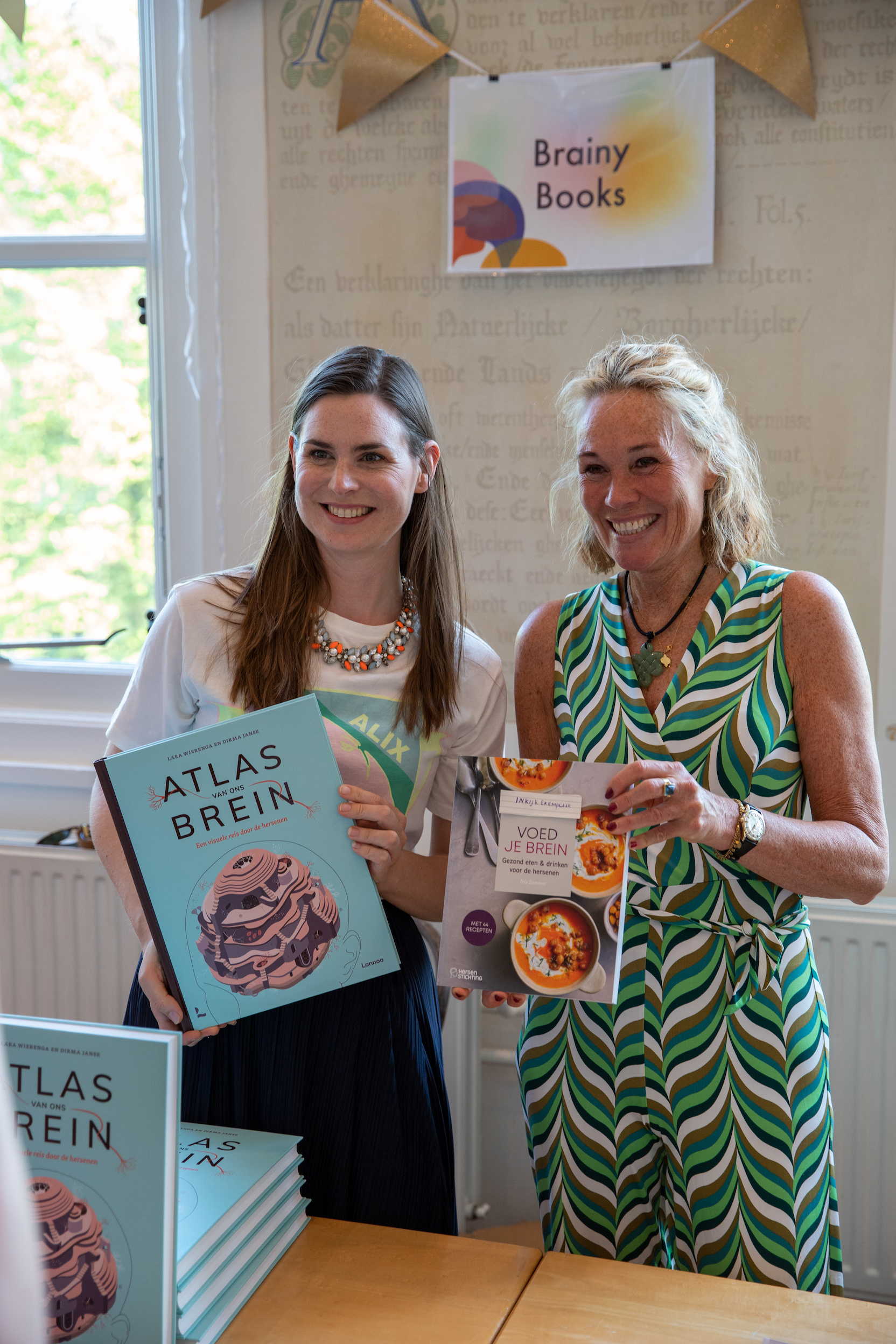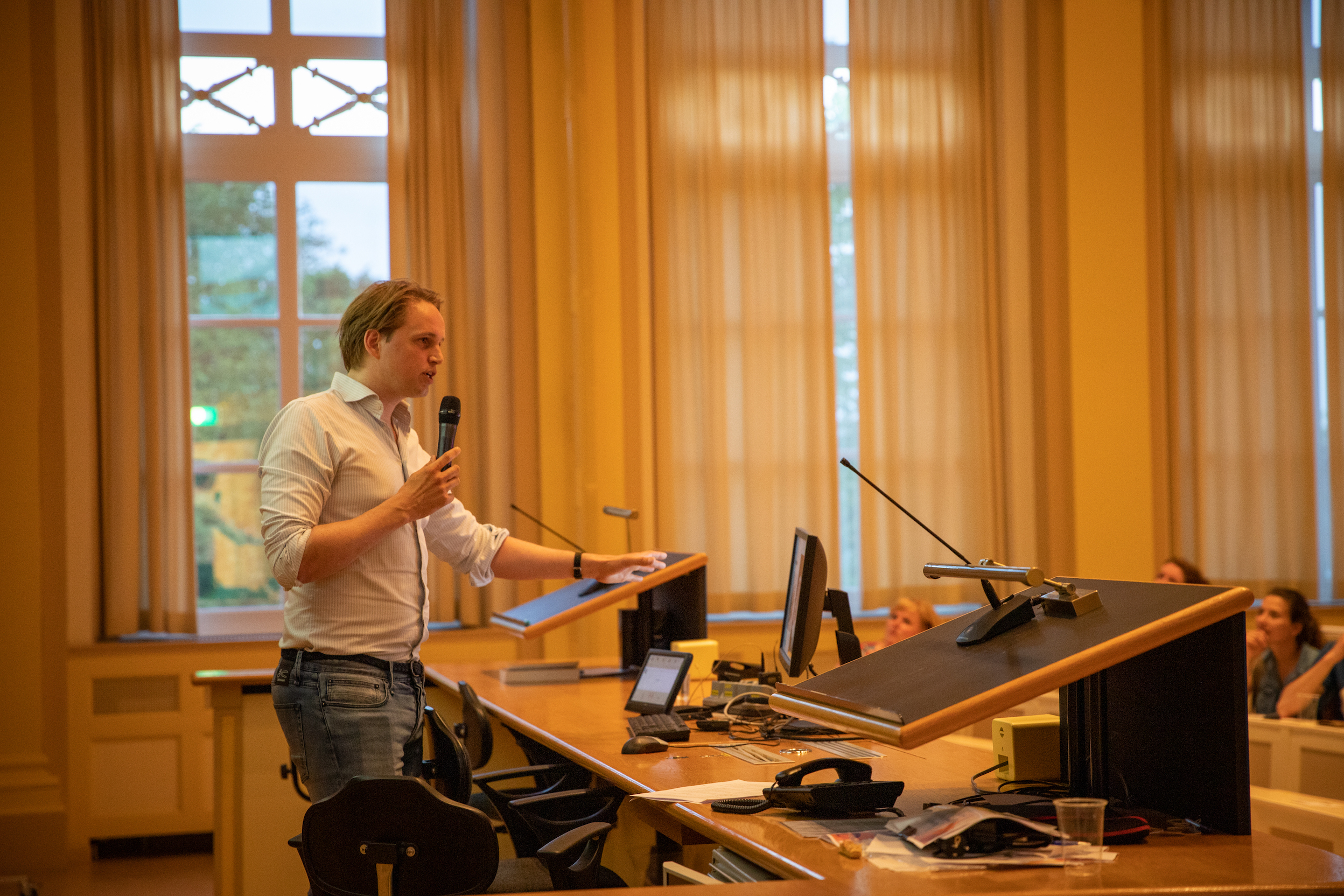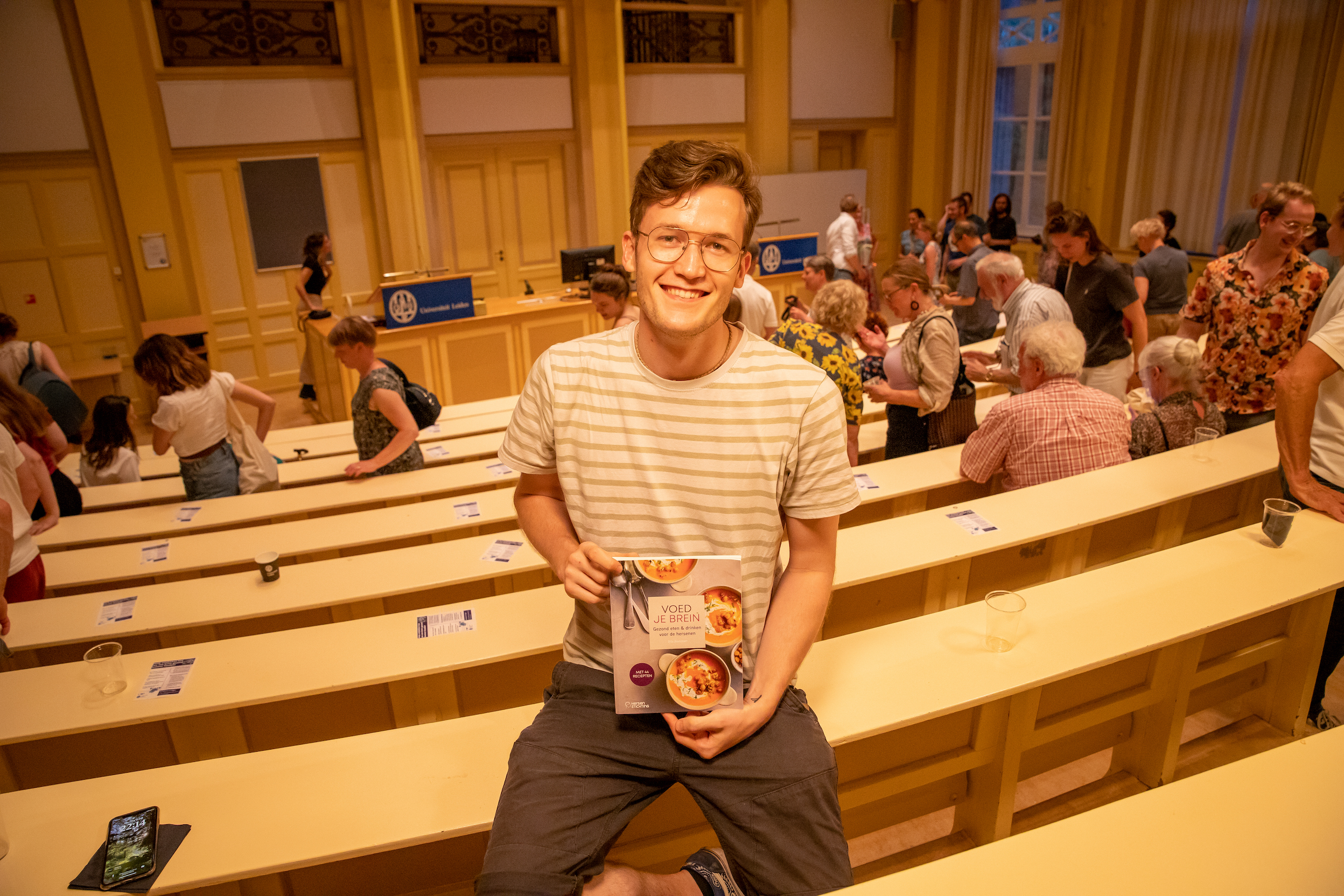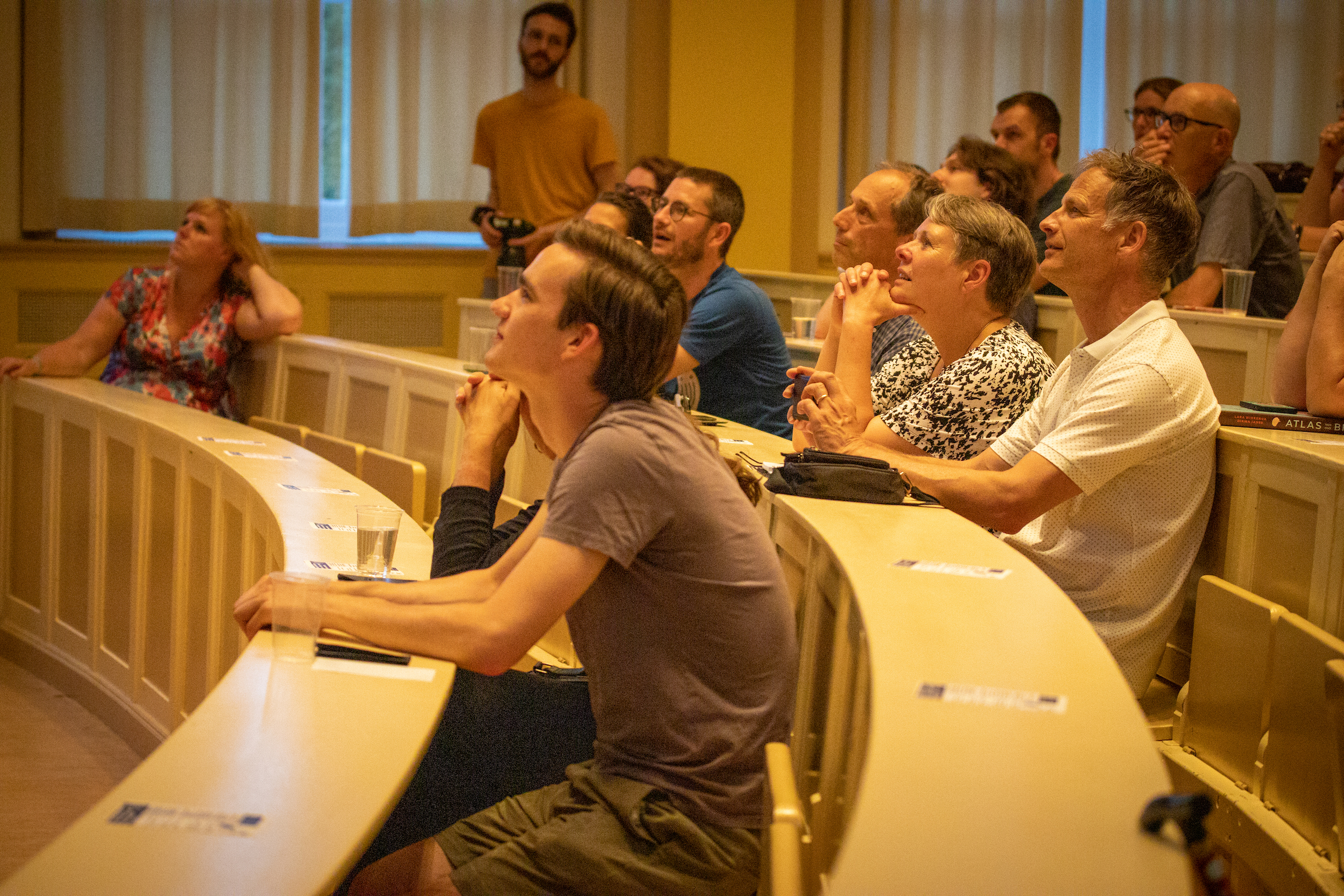
How to keep your brain healthy? Scientists provide tips at brain festival
At science festival 'Over de kop', surprising brain facts alternate with confronting stories from the operating room. Researchers explain why our brains love beans and why you should never ride a racing bike without a helmet.
While groups of students lazily lounge in Van der Werffpark after a heated day of studying, about seventy people enter the KOG building. They are ready for a cozy evening in the lecture halls. The entrance hall of the brain festival has been transformed into a brain market, where visitors explore the set up experiments, flip through brain books, and yes, even admire slices of 'real brains' up close.
Brain injury
Mirella and her daughter Eva stir their cups of tea at a long table. 'I came across the event on the Sleutelstad website, and it seemed interesting to me right away. I'm always curious about what happens in the brain,' says Mirella. She is looking forward to neurosurgeon Jeroen van Dijck, who will explain what brain injury does to the brain. 'I work in special education with children who have brain injuries, so tonight I hope to understand them better.' Eva, her daughter, also enjoys delving into the brain. She is currently in high school but hopes to do 'something related to biology' in the future.
Myths on Facebook
Also present at the brain market are Tinka, Roos, Floris, Sybren, and Thijs. As volunteers, they work on the podcast 'Over de kop' alongside their psychology studies or jobs. In the series, neuroscientists extensively discuss their field of expertise. Tinka says, 'I find it important to build a bridge between science and society. There is so much knowledge about the brain that can be useful in daily life, and I want people to have access to it.' This is also because there is a lot of misinformation circulating. 'I often come across brain myths on Facebook, and with this podcast, we want to debunk them,' says Floris
Beans for our brain
In quick presentations, four brain scientists explain how our brain functions during everyday activities. Hanneke Hulst, a professor and organizer of the festival, introduces the presentations: 'Tonight, be sure to ask critical questions about what we tell you; that keeps us on our toes.' At the end of each presentation, a quiz question is asked, and the winner receives the cookbook "Feed Your Brain" by psychiatry professor Iris Sommer, published by the Brain Foundation.
'Who lives in your gut depends on who you feed,' says Sommer. She researches the relationship between our diet, gut flora, and brain function. Substances in our food influence the bacteria in our intestines and our brain functions, thereby affecting our mental well-being. 'In people with borderline and depression, their illness can be seen in their gut flora. They often experience stomach and intestinal problems as well.'
Fortunately, we can influence our gut flora by eating the right food and avoiding certain foods. 'Red meat, for example, resembles our own tissue so much that the immune system sounds the alarm. If that happens too often, it's not good for your health. It's important to eat anti-inflammatory foods, such as kidney beans. They contain a lot of fiber, which helps with digestion. So, chili sin carne is a good choice.'
Rest, cleanliness, regularity
In addition to beans, our brains also thrive on warm milk or tea. Before going to bed, that is. This is advised by neurologist and sleep researcher Rolf Fronczek from LUMC. He researches the treatment of headache and sleep disorders and gladly provides tips for those who often toss and turn. 'Rest, cleanliness, and regularity. Wake up at the same time every day and go to bed at the same time, even if it may seem boring. Be active during the day, but wind down just before bedtime and drink something warm to cool down your body.' Because we sleep best in a cool environment; it's no wonder many people toss and turn in this heat.
Lost
And for those who step onto their bike or into their car well-fed and well-rested, they often don't think twice about the familiar route. Except for people with acquired brain injury. '30 to 50% of people with brain damage get lost regularly,' says Ineke van der Ham. She is a neuroscientist and researches how technology can improve our spatial awareness. That's why she designed a game that helps patients improve their navigational skills. For those without brain injury but who want to train their inner TomTom, she says, 'Challenge yourself to find your way home without Google Maps when you're in a new place.'
Skull in pieces
Here's another reason not to constantly stare at the navigation app while cycling: it prevents accidents and a lot of trouble. Jeroen van Dijck is a neurosurgery trainee who operates on people with severe brain injuries. 'Warning: the photo that follows is from the operating room.' The audience is fascinated as they look at the enormous swollen brains literally bulging out. Occasionally, a tense sigh can be heard. Van Dijck says, 'With a craniotomy, surgeons temporarily remove a part of the skull to allow space for the swelling.' With that procedure, patients can still recover from their accident, but it's best to keep your skull intact.
A bean burger on the barbecue, a cool breeze in bed, and cycling to the beach without GPS (but with a helmet): many ways to make your brain happy this summer. Jonathan answered all the quiz questions correctly and won Sommer's recipe book: 'I'm definitely going to enjoy cooking from this.'
Photography: Priya Ramcharan & Remond Wulff

